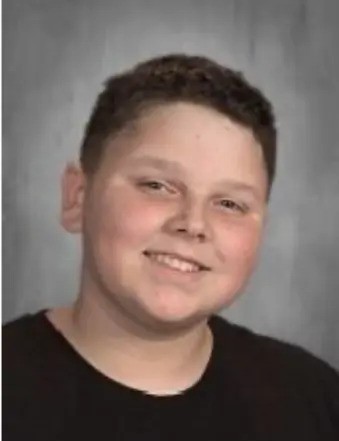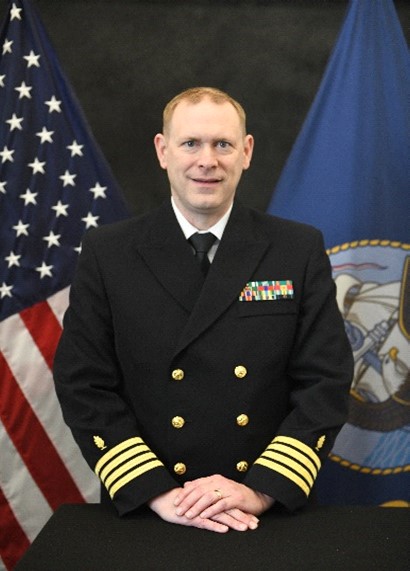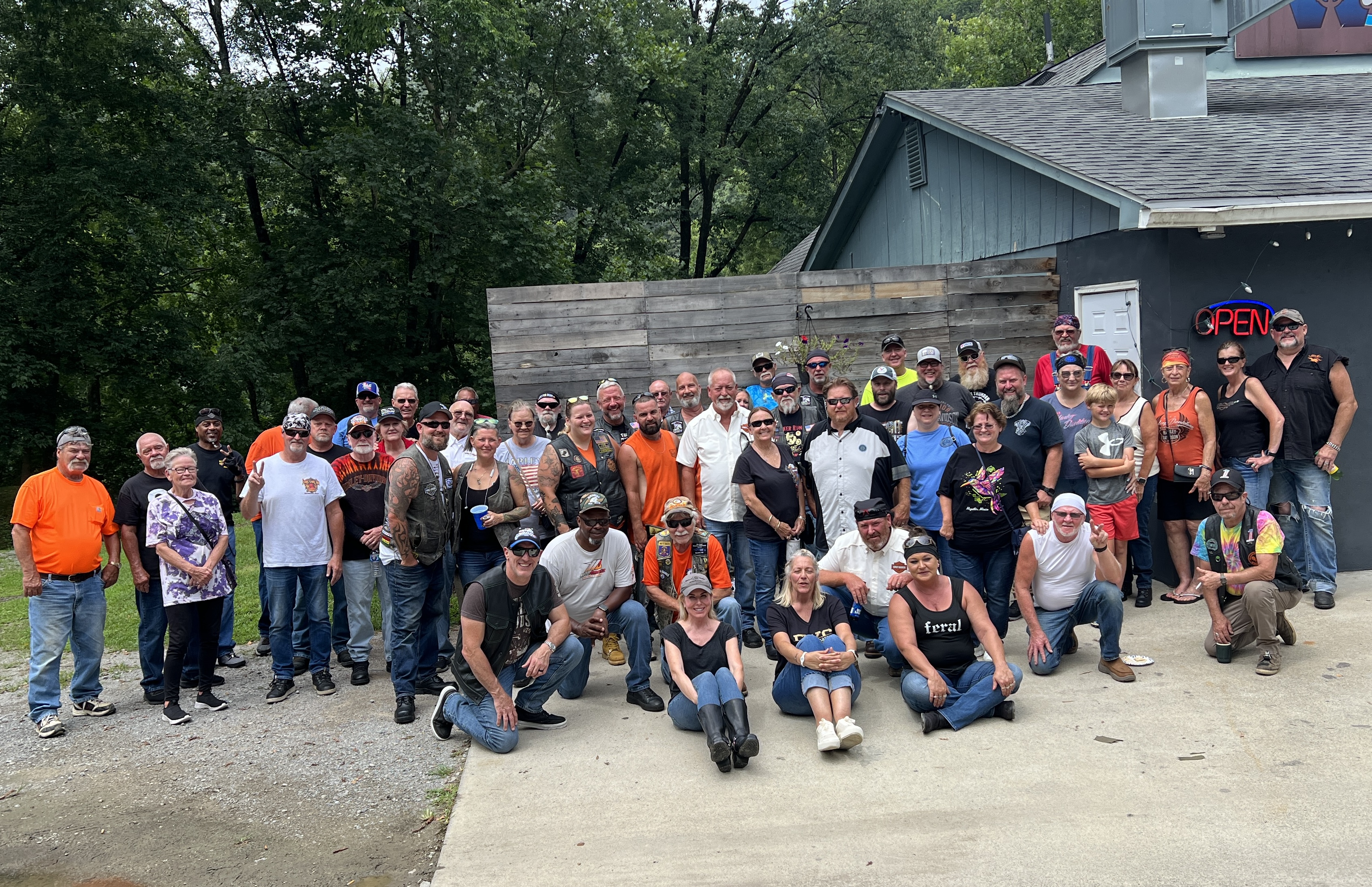John E. Fryer, M.D.: Psychiatrist and Dr. H. Anonymous
Published 8:00 am Saturday, August 12, 2023

- John Fryer in the Winchester High 1953 Shawnee Yearbook. (Photo submitted)
|
Getting your Trinity Audio player ready...
|
By Harry Enoch
Contributing Writer
In the 22 years I’ve lived in Clark County, I had not heard the name of John Fryer. I first read about the famed gay psychiatrist only a month ago in a column by Linda Blackford in the Lexington Herald-Leader. How could I have missed him? Despite a legendary speech to the American Psychiatric Association (APA) that provided a tipping point in the history of gay rights, I cannot find his name ever mentioned in the local press. Surprising, as he was a Winchester native but perhaps partly explained by society’s widespread disapproval of homosexuality at the time.
Trending
Before getting to Fryer’s story, let’s explore the American scene at the time of his famous speech. In the 1950s, thousands of government employees lost their jobs for being gay. In some states, gay men were imprisoned or committed to mental institutions where they underwent electroshock, lobotomy or castration. The long, slow process of decriminalizing same-sex behavior began in Illinois in 1961. In 1968, however, homosexuality was still listed as a mental illness in APA’s “Diagnostic and Statistical Manual of Mental Disorders.”
On May 2, 1972, Dr. Fryer slipped through a side curtain at the APA convention, appearing as Dr. H. Anonymous wearing a rubber joke-shop face mask, wig and oversized tuxedo, announced through a voice-altering microphone, “I am a homosexual. I am a psychiatrist.”
Fellow therapists were riveted. They were not used to hearing from homosexuals who felt sane and normal. Fryer estimated that more than 100 gay psychiatrists were in attendance at the convention when he told the audience, “I attempt tonight to speak for many of my fellow gay members of the APA, as well as for myself. Several of us feel that it is time that real flesh and blood stand up before you and ask to be listened to and understood.” He challenged the classification of homosexuality as a mental illness and received a standing ovation at the end of his ten-minute speech. You can listen to a replay of the speech at https://www.nytimes.com/2022/05/02/health/john-fryer-psychiatry.html.
The following year the APA reversed its nearly century-old position, declaring that homosexuality was not a mental disorder. Fryer’s speech was cited as the key factor in persuading the psychiatric community to reach their decision. In fact, the president of the APA, Dr. Judd Marmor, conceded that the APA classification of divergent sexual preferences was due to moral values “couched in ‘medical’ and ‘scientific’ rationalizations.”
Later that year, Fryer lost another job, this one at Friends Hospital. An administrator called him into his office. “If you were gay and not flamboyant, we would keep you. If you were flamboyant and not gay, we would keep you. But since you are both gay and flamboyant, we cannot keep you.”
John Ercel Fryer (1937-2003), the son of Ercel R. Fryer and Katherine Zempter, grew up at #5 Bon Haven Avenue in Winchester. He graduated from Winchester High School, received a bachelor’s degree from Transylvania University, a medical degree from Vanderbilt and did his internship at Ohio State University. He held a residency at the University of Pennsylvania but was forced to leave there after he was identified as a homosexual.
Trending
Fryer joined the medical faculty of Temple University in Philadelphia in 1967. There he became a professor of psychiatry and of family practice and community medicine. He built a specialty in bereavement counseling and helped pioneer the hospice movement. He also treated alcoholics and drug addicts. Later in his career, he began treating gay men with AIDS who were dying.
Few sources report any details of Fryer’s early life in Winchester. Fortunately, we have a brief memoir by his sister, Kathy Fryer Helmbock. She recalled her parents bringing John home, “He was big, 10 pounds, 11 ounces. Dr. [Harvey] Henry at Clark County hospital delivered him. John had a long scar on his forehead from the forceps.”
She continued, “John was a happy baby [and] seldom cried unless he was hungry. When he was three and I was eight, we played school. When he was five, he was allowed to enter school at the second grade level.” He would graduate from Winchester High at age 15 and enter med school at 19. “I did not know John was gay. In fact I did not know the word homosexual or what it meant.”
“John was accepted at Vanderbilt and left for Nashville. Again, a lot of hard work that all med students endure. My strongest memory of that time was a Siamese cat he brought to our parents. It had been used in experiments and was scheduled to be killed. John named it Zen Buddha. My folks reluctantly took it in.”
“John’s real love was the pipe organ. He first studied piano with Miss Ellen Bush on Boone Avenue then organ with Mrs. [Ruth] Stallings while still in grade school. He wanted to play the organ at our church, First Christian, but the elderly organist [Hazel Walker] was not about to let ‘that little Fryer boy’ mess with her stops. Two blocks down Hickman Street, a small Episcopal church welcomed him with open arms.” Throughout his education and later life, Fryer managed to play the organ—at Transylvania, Vanderbilt, Columbus and then in Philadelphia he searched out and found Episcopal churches in need of an organist.
“John joined the faculty at the Temple Medical School and had a very tenuous time until he got tenure in 1978. Afterward, he was more open about his homosexuality and the Dr. H. Anonymous event that he later said was ‘probably the central event of my career.’”
“John retired from Temple in 2000. In 2002, when the APA held its annual meeting in Philadelphia, John was honored at a dinner recognizing the anniversary [of his speech]. I was not too surprised to get a call in late February 2003 from a doctor at Jefferson [Hospital]” announcing that John had died. He had just turned 65.
Decades would pass before gay rights historians fully understood the significance of the Dr. Anonymous speech, that it had “a Stonewall riots kind of importance.” John Fryer’s papers are now archived at the Historical Society of Pennsylvania. In 2018 Ain Gordon’s play inspired by those papers, “217 Boxes of Dr. Henry Anonymous,” held its premier at the Baryshnikov Arts Center in New York City and debuted at Transylvania the following year.
Philadelphia erected a historical marker in Dr. Fryer’s honor and listed his home on the Historic Register. In 2022 the city celebrated the 50th anniversary of the Dr. Anonymous speech and declared May 2 John Fryer Day.
The 2022 television documentary “Cured,” revealed how a small group of activists brought about a significant shift in the movement for LGBTQ equality and dignity. Dr. John Fryer plays a pivotal role in the highly acclaimed film.
Thanks to Susan Hubbard and Rev. Jerry Johns for identifying the Christian Church organist.





